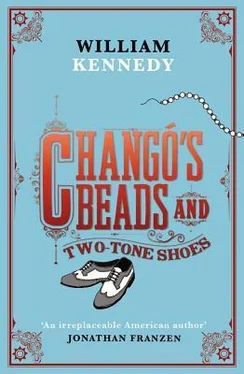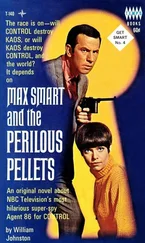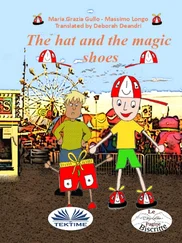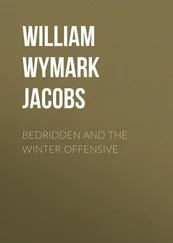“My mother, Celia,” Renata said. “Mama, this is Daniel.”
Quinn took Celia’s fingers in his hand and kissed them and said he was incredibly happy to meet the mother of Renata, whom he valued beyond words and whom he wanted to marry as soon as possible.
“Marry?” said Celia.
“The first time he saw me he told Hemingway he would marry me,” Renata said.
“Hemingway? What does he have to do with you?”
“It is a long story, no, a short story, Mamita, but I have grown fond of Daniel very quickly. He is from New York.”
“And that makes everything all right?”
“I knew you would like him.”
“I don’t even know his full name.”
“Quinn,” said Quinn. “Daniel Quinn. And I really believe it’s fated that I’m in Cuba and fated that I met Renata. I’m tracking my grandfather who came here in the last century to write a book about your national hero Céspedes. I read that book in high school and dreamed of coming to a place like Cuba and writing about battles and heroes and villains in a war like your Ten Years War. Now there’s a war in the streets of Havana, and in the mountains of Oriente, and I’m here and I’ve started writing about it.”
“Why do you want to write about war?”
“To tell something to myself, and to keep myself from boredom.”
“Do not get my daughter into this.”
“It’s the last thing on my mind. I want to save her from everything.”
“You are impetuous, asking to marry her so soon.”
“It’s the sanest judgment I’ve ever made.”
“Daniel is a new friend but a great friend,” Renata said, taking Quinn’s hand. “I don’t know how it happened so fast but it is very real.”
“All her life she was an incredibly loving child,” Celia said. “Everyone loves her.”
“I’m finding that out,” said Quinn.
“We have to go,” Renata said. “The police may return.”
“I’m sorry to leave,” Quinn said. “I wanted to talk about your dancing. Renata said you won prizes.”
“You want to talk about my dancing?”
“My father won prizes for his dancing. He was a prize waltzer. You were too, no?”
“I was.”
“You see? Another stroke of fate — Renata and I, children of prize waltzers.”
“You are as strange as my daughter. Another time we will talk about dancing. Protect this child of mine.”
“With my life,” said Quinn.
He remembered that his grandfather wrote about Céspedes’ child — his son Oscar. The Spaniards captured Oscar in battle and threatened to kill him if Céspedes and his followers did not surrender. Céspedes told the Spaniards Oscar was not his only son, that he was the father of all Cubans who died for their country. A firing squad then executed his son.

They went to the Ali Bar, where Renata called her contact number and spoke with a voice she recognized, and said have Pedrito call me here. They drank mojitos because she always drank them here for breakfast after all-nighters.
“Beny Moré sang to me here one night,” she said. “He comes all the time. Everybody comes here. Gary Cooper sat right there.”
“Do you see anyone who knows you?” Quinn asked.
“Nobody would know me with my blond wig.”
“I’d recognize your mouth no matter what color hair you had.”
They drank their mojitos and in twenty minutes Aurelio called. Renata told him Alfie could bring out las cosas from the Vedado apartment because he is shrewd and fearless and she trusts him and will pay him herself to do it. Aurelio said he’d call Alfie.
“I will go see Alfie now,” she said, “but you must do the rest because I’m going to Santiago.”
It was dawn when they left the Ali Bar and Quinn considered calling Hemingway about the Cooney challenge. He would be up and writing. He gets up with the birds. But does he answer the phone during birdsong? So they woke up Alfie and he met them on the Nacional’s patio, which was empty of people. They walked down the garden path and stood under a royal palm with their backs to the hotel and Renata told him of the guns. He said he’d think about it after he talked to Pedrito, who, she admitted, was really Aurelio. But if the police were watching that apartment it would be dangerous.
“I will give you five hundred dollars now and another five hundred when I get back from Santiago. Is that enough? We are not buying these weapons, just reclaiming them,” she said.
“These are Directorio guns?”
“Yes, but they will go to Fidel now.”
“Is this Fidel’s money?”
“No, it is mine.”
“You’re the new Directorio, all by yourself?”
“I worry the police will take the guns I put there. Fidel needs them badly.”
“How will you get them to Fidel?”
“Maybe by yacht, or truck, maybe airplane. A car is impossible, there are too many guns. Aurelio will figure a way. Maybe you can help him. I won’t be here.” She handed him five of the six hundred dollars her mother had given her.
“Keep your money,” he said. “Wait till I get the guns.”
“You don’t behave like a gangster. Gangsters like money.”
“You don’t behave like a debutante. Debutantes don’t know anything about money.”
“Fidel will be pleased if you get him these guns.”
“I think I knew that.”
“We’ll be staying at the Casa Granda hotel in Santiago,” Quinn said. “I’m covering an army press conference about Fidel.”
“Are you going into the Sierra?”
“If I’m invited.”
“If you see my cousin, drop my name.”
“Who’s your cousin?”
“Arsenio Zamora. Quesada murdered two of his boys. He is close to Fidel.”

What Quinn said when he telephoned Hemingway was, “Max took a call from somebody asking for me and he thought he recognized your voice.”
“Max’s ear is working,” Hemingway said. “There may be hope for him as a spy. I read your story about the killing of Cooney’s friend.”
“Cooney just missed getting it and so did I. Pretty hairy.”
“I’ll pick up Cooney’s doctor bills. Maybe you could work that out. But don’t connect me to it.”
“It’ll go into the archive of lost history. Actually Cooney wants to reach you. He wrote me a letter. You know about this?”
“No.”
“I should give you his letter in person.”
“Sounds like top secret.”
“I’ll meet you if you come to Havana. Or I can bring it to you.”
“Does this go into your novel?”
“Chapter seven.”
“I’m here, but right now I’ve got a funeral to go to.”
“Who died?”
“My dog.”

Hemingway’s home, Finca Vigía, was twenty minutes southeast of the Floridita, a long, formidably handsome one-story white limestone Spanish Colonial built in 1882, uphill from the town of San Francisco de Paula. From an adjacent four-story white tower where Hemingway famously wrote and kept his cats, there is a distant view of the sea he made famous. Since he moved into the Finca in 1939 it had become a place where the grand and the great among writers, generals, movie stars, journalists, baseball players, sailors, drinkers, and women queued on the front steps to talk, swim, party, flirt with, or just shimmer in the waves of mythic glow that emanated from this maestro of the word, the hunt, the deep sea, the saloon, the bull-ring, the wars, the self. The crowd pilgrimaged to this American hero in the way Lázaro’s throng of beseechers crawl on their backs to him. Renata said she’d rather stay in the Buick.
Читать дальше















